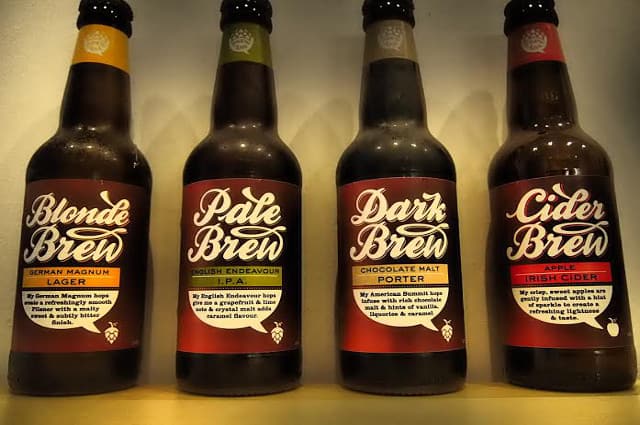Brewers, beer geeks and bloggers have long argued about how to define craft beer, or whether it needs to be defined at all. Such is the abiding nature of the debate it’s become something of a running joke, but the formation of the United Craft Brewers this year has breathed new life into the parley. Taking inspiration from the Brewers Association in the United States, United Craft Brewers states it will seek to “promote and protect the interests of British craft brewers, our beers and the community of beer enthusiasts”. This will necessarily mean arriving at a definition of what constitutes a craft brewer(y), which will in turn inform the wider debate about what defines craft beer. My position on this has oscillated over the years between believing there’s a need for a definition and a “que sera, sera” approach, having faith that, left alone, beer drinkers are savvy enough to know what’s what. However, I’ve recently come to the conclusion that the term needs to be formally defined in the same way real ale is, and the formation of the United Craft Brewers is a useful starting point.
The reason for the cementing of my opinion is my increasing anxiety about craft beer’s popularity being exploited for commercial reasons, most notably in craft beer re-brands by large regional family breweries and macros adopting the language of craft beer (not to mention the so-called craft beer options offered by an increasing number of middle-of-the-road pubs). Ownership is another area of concern, and while some takeovers can be beneficial to both parties, others induce anxiety about the long-term prospects for the quality of the beer in the face of shareholder demands for a return on their investment. As for contract brewing and gypsy brewers, these needn’t be problematic as long as it’s explicit – honesty and transparency are paramount when talking about any definition of craft beer.
This brings me to the new Edinburgh-based venture, Brewhive (not to be confused with the established independent beer and wine merchant, The Beerhive, also based in the Scottish capital), which recently sent me a case of its beers. With slick marketing, Brewhive looks the part but for the fact it appears to have a limited role in the actual brewing process. Using familiar buzz words such as “crafted” and “passionate”, the Brewhive range consists of a German lager, an English IPA, a chocolate porter and, worryingly for me, a cider. Looking at the website it’s impossible to discern where and by whom the beer is brewed or cider is made (Brewhive is a brand rather than a brewery). What is the relationship between Brewhive and the brewers? Is there one, or is Brewhive simply an online beer delivery service offering a very limited range of beers? Apparently there is a Brewhive sommelier – I wonder did they devise the recipes in collaboration with the brewers? I decided to check the bottles, and was surprised to see the words “Brewed in ROI”, so I made further enquiries to Brewhive which revealed that the drinks are produced at the C&C “small batch brewery” in Clonmel, the home of Bulmers. Further research brought me to the website of Brewhive’s founder and owner, Kevin Dorren, who outlines his plan for Brewhive as follows:
“Craft beer has grown into a major market over the last 5 years in the USA. In the UK there are few customer centric brands focused on this fast growing market. Singularly focused online the brand plans to become the largest craft beer brand in the UK.”
Kevin looks to be a very successful man, and no one can blame him for taking advantage of the boom in the popularity of craft beer – this is simple capitalism. However, the above words don’t exactly scream craft to me, and while the beers may be fine (I haven’t tried them yet), the lack of transparency about provenance is troubling, as is the apparent hands-off approach. Matt Curtis and Yvan Seth have both made valuable contributions to the debate about what constitutes craft beer recently, and I’m pretty sure Brewhive would come unstuck if tested against their respective criteria. I’ll post a review of the beer soon, but I’ll pop the caps with some trepidation. I opened the cider which had the look and taste of a Bulmers, but I’m sure it’s a different recipe rather that the ubiquitous cider (served over ice) in a different bottle.
So good luck to the United Craft Brewers. There’s an open invitation for like-minded breweries to join, and it is to be hoped as many breweries as possible get involved and arrive at a set of guiding principles which convey what it means to be a craft brewery. Yes there have been many disputes between breweries in relation to intellectual property and the like in recent years (and we need to remember the United Craft Brewers is essentially a trade body) but there’s been many more instances of collaboration between breweries resulting in some astounding beers. If a new organisation is what’s required to protect the quality and integrity of what we generally understand to be craft breweries, and consequently craft beer, so be it.
Addendum: My correspondence with Brewhive was via an incredibly efficient, polite and helpful intern who will go far in the beer world and is a credit to the company.

